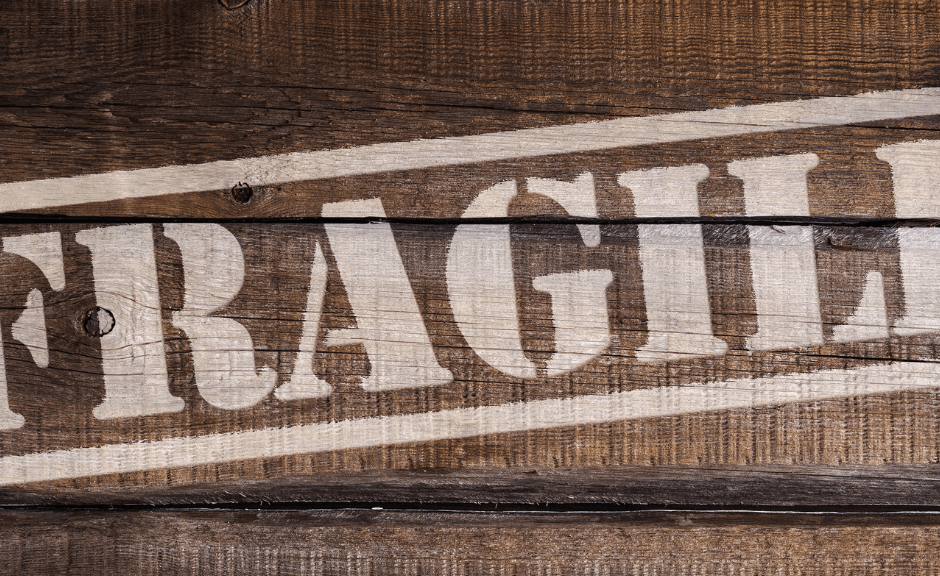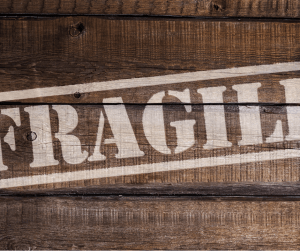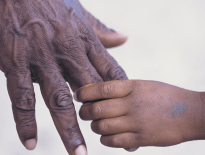
The Complexities of “White Fragility”
Hello! I think I’ve recovered enough from the powerful and vulnerable and imperfectly perfect experience that was the first Evolving Faith conference to write this now. (If you’re new to this page, you might not know that I was there as a sponsor, which was in itself a totally vulnerable leap of faith for this little fledgling Assertive Spirituality project that’s currently just me, and a labor of love to offer the expertise I have to those who are willing to hear it.) In this article, which I see as a sequel to the most recent article on weakness-shaming and trauma, I’ll be talking about my allergy to the word “submit” that came from my experiences with bullying and emotional abuse. And as a result, I’ll be asking for a favor in regard to the use of that word as well as the phrases “white fragility” and “white tears.”
The Limitations of This Article
This article got super long. I ended up cutting off more than half of it. Just please trust that there’s lots more processing and writing that went into these thoughts, will you please? I’d be glad to hear and answer questions asking for further nuance in the comments as I have time and ability, and would love to hear your own thoughts.
I do ask you to take a moment to step back and consider what I’m saying carefully, if your first impulse is to react negatively.
I’m also not asking for unqualified support here either, by any means. I don’t expect my words to be perfect. But I think I have some valid points here that can help us all do our parts to fix a problem together, or I wouldn’t be posting this. Please hear me out if you can.
My Fight Instincts Toward Those who May Blatantly Mishear
<begin valid rant> And so help me if any white folks use this article as support for their own active intentional, or willfully unintentional, racism—that is a deep concern of mine, and I would fight that appropriation with every bone in my body. <end valid rant>
I was deeply concerned about saying or posting this at all because of that. After much reflection I felt like I needed to say it anyway. Just know that’s not at all easy for me in the bizarrely twisted current US communication climate.
Why I’m Addressing this Publicly
While the less-healthy zero-sum dynamics I’m about to discuss were present in glimpses at the Evolving Faith conference this weekend, I’ve seen them in other spaces with diverse voices as well. I see them as outgrowths of natural stress responses that are common to everyone, but often unhealthy if displaced onto others.
Where My Concerns and Awareness Are Coming From
All of this awareness is based in my own trauma experiences, in my naturally highly sensitive personality that’s always been an NF (that’s intuitive-feeling, as opposed to sensing-thinking) on the Myers-Briggs, and my research and teaching of stress, trauma, and conflict communication.
As you’ll see, I’m also drawing on the lessons of other non-white experts, including non-Western ones (see, for example, Chimimanda Ngozi Adichie’s Ted Talk “The Danger of a Single Story”). I want to give credit to those voices, for sure.
(And yes, I’ve read the bulk of DiAngelo’s book White Fragility and considered it carefully. I love many of her points, but am responding to her form of the original concept as well as the applications I’ve seen in the world.)
And I also see so many strengths and also potential for that healthy community everywhere I look among communities that allow for diversity and evolution of ideas. That’s why I bother saying any of this. I trust we can work together well against the toxic sh*t we’re all facing.
Time to Move On to the Challenges I Saw, Though
So this was my big challenge in listening to some of the messages this weekend at the conference: as a recovering avoider-accommodator, I have both a rightful and overblown allergy to the word “submit” right now.
For those who weren’t there, there was a lot of recognition of the ways that fundamentalist abuses of the word “submit” has been used to get people to kowtow to systems of power.
I was so glad that so many talks at the conference talked about the problems with abuse and “Christian Nice” and the trauma that can come from authoritarian systems.
Because yeah, I saw myself there so completely.
A Few of the Problems with the Use of the Word “Submit”
The problem came for me when the word was itself used at the conference, largely from those asking that white allies “submit” to “make room” for other marginalized peoples. This is vulnerable to admit, but this was triggering for me: I heard in these uses a reinforcement of the same logic of supremacist authoritarianism that I’ve been running away from—and I suspect I am not alone in this.
After all, as the #metoo and #churchtoo movements have made abundantly clear, the word “submit” has been used for centuries in white communities to keep women in abusive relationships and marriages. And as people in so many marginalized communities know so well, that’s honestly just the tip of the iceberg of major trauma that abuse of this concept has created.
A Difficult Request for a Little More Patience
The rest of this piece will unpack a few of my complex reactions to this word as used at the conference, and contain a request for what I know some marginalized peoples will find it hard to hear well—a request for just a little more patience with some of us white folk who are working hard to be allies. And a request to not use the words “fragility” or “white tears” when referring to those of us who are actually trying to do the best we can.
I know not everyone is trying to do their best. And I know this is a really hard ask, mind you, because I myself have felt the challenge of emotional labor placed on me by people representing the various powers-that-be–and I know as a white person I too participate in the power structure.
Here’s the thing: My own experiences have helped me understand all too well a tiny part of what marginalized populations have been experiencing for decades and centuries. (Again, a tiny bit; not looking to appropriate here, or compete.) They also help me explain some hurtful aspects of “supremacy culture” that I do believe intersectionally transcend race.
In Which I Tell My Story, Understanding It Might Be Hard to Hear Another White Voice
Here’s some context: As I’ve described elsewhere on this blog, I’m a recovering avoider-accommodator because that was what I was trained to be by the community I grew up in. The societal powers-that-be trained me that way in really subtle ways through the means we all get trained into social systems—that is, through contact with messy, often traumatized humans.
In short, “waking up” to racial justice issues has been a super-long process for me because a bunch of well-meaning white people, including myself, were also trained to be compliant to the powers-that-be.
“White Fragility,” Coates’ “The Dream,” and Trauma

My research has confirmed for me that trauma often trains our bodies to dissociate from our pain. And large chunks of my Western culture among others have failed for centuries to realize that physical symptoms may be a sign that my body is telling me about things my society teaches me to dissociate from as abuse.
Specifically, I believe that the trauma inherent in supremacist systems (all kinds, white supremacy included) generally is what largely creates the aspect of white culture that the fabulous Ta-Nehisi Coates so eloquently describes in his book Between the World and Me as “The Dream.”
The Trauma of Trying to Wake People Up
And believe me, having dealt with traumatized people who refuse to get help, I know how steadfastly frustrating dealing with “the Dream” in enfleshed form is. I haven’t stood in a Person of Color’s shoes (that’s not a position accessible to me), so I can’t know exactly how those born in that skin feel about that frustration.
But from the inside of white culture, even in a white body–it’s not fun to be even partially awake and try to wake others up. Even when I have all of the words and knowledge to explain supremacy and trauma to people, they still can’t always hear my message.
Why My Body Rejects Messages of Perfection
Being someone who studies stress and trauma, I know that my felt lack of control over people’s reactions, my desire to wake people up who have been enacting supremacy of all kinds, has been interpreted by my body as part of the trauma I have to keep unwinding.
I hate that that is so. But it is.
My body experiences messages that smack of double-binds–that I need to be perfect when there are real and understandable limitations on my actions–as danger messages. I think this is wise of my body a good chunk of the time. Sometimes it’s an overreaction, and I work on that.
But overall, I’m honestly thankful for it. It helps me see the messages I’m fighting–the ones I’ve been wounded by–really clearly. Except when it’s not. And sometimes it’s honestly hard to tell the difference.
Why My Body Rejects the Term “Fragility”
Here’s my point: if I am fragile as a white person in spots, it is because “the Dream” inherent in supremacy culture has beaten me up too–and I know I’ve internalized a lot of it.
The thing is contending with those wounds themselves have given me greater empathy for others, as well as better ability to see and stand up against the systems who have wounded me—and so many other groups as well. And so my body and brain alike rejects attaching the word “fragile” to them, even while I’m hesitant to think I’ve even come close to having it all figured out.
Because of the way my body coped with its trauma, my body and brain alike didn’t realize for a long time that the “Christian Nice” culture I grew up in was nonetheless emotionally abusing me even while it was giving me the tools to stand up against and remove myself from the specific sources of that abuse.
Because of trauma, most of the well-meaning people that participated in my trauma didn’t realize the depth of the damage, and sometimes not their part in it, either.
I keep asking most of them to change ongoing behaviors that reinforce that system, but I don’t blame them for the past or for the abusive system itself. I know it’s the supremacist systems (white supremacy, patriarchy, etc.) that abuse all of us that cause the problems. And I know “the Dream,” as a pretty intense natural coping mechanism, is a mixed bag, as are most things—strength and weakness combined.
I really hate that I need to contend with it, so I can only imagine how horrid it is for others born on the outside of it. I can assure you I’m reading to find out more. But I also need to reclaim my voice, and want to be of help, so I don’t feel I can step back while I do.
The Emotional Labor of Facing Trauma
Coming out of that dissociation and facing my wounds and their causes has been one of the most courageous things I’ve ever done.
But toxic masculinity, as expressed in white culture and elsewhere, tends to shame that emotional labor and strength alike.
Fighting that shame inside of myself has been a huge part of my recovery process. And so learning to hear the voice of the oppressor is to listen to part of my own voice, and to learn to fight that part of my voice within me as well as externally.
The thing is that the voice of liberation is also inside of me, helping me out. And blanket terms that refer to me as either all strength and or all weakness disregard this strength, which I believe is in-born and my birthright. As I believe it is for every human.
I am committed to doing my best to protect that birthright for each of us, whatever groups we were born in. And in my best moments I don’t think mine is better than others.
My Request and Challenge to My Friends in Solidarity
To call my liberating emotions “white tears,” or my ongoing struggles to discern between internal and external voices of oppression and liberation “white fragility,” feels like it is diminishing some incredibly good and strong parts of me along with the voices of the internalized oppressor.
I could totally be wrong about this, but frankly, I think to use those terms is to reinforce supremacist culture. Whatever is happening there, it certainly wounds me further. I will recover from it, sure, and will keep contending, but I need to be honest about that.
I so know I have more to listen to, more to learn. Believe me, toxic supremacy culture has already taught me that, in spades. Here’s the thing: because of that, I’m already incredibly strong in the area of listening—except when it’s delivered in shame-related language.
And even when it is, I’m incredibly good at practicing shame resilience.
Claiming My Strengths
These are strengths I have. And I know others sharing my intersectional identity don’t all share them. But some of us do.
For those of us who do share these things as strengths, to call them weaknesses, fragility, to pour contempt on them—that, respectfully, is an “alternative fact.”
And aren’t all of us facing enough gaslighting just now? Can we please not add to each other’s existing burdens more than necessary?
What I’m Not Claiming
In saying this, I’m not saying I, or any of us, is “all strength” or better than anyone else, in any way—and as I said at the top, I will strongly reject anyone who tries to use this message to reinforce their belief that they are. And if it’s in any doubt, I am very committed to taking down those who are active intentional racists, and willfully persistent racists, from positions of influence.
Calling Us All to Action
But damn, it’s hard to hear those terms “submit,” “fragility” and “white tears” applied to those who are working to be allies. They frankly knock me out of my ability to do as much good when someone uses them. And I really just ask all of us to work to find less shame-y, less double-bind-ish ways of discussing strength and weakness for the good of us all.
I ask not just for me or for white people here, but that all of us intersectional identities that are trying so hard to work together to fight back the toxic sh*t in this world. Let’s try not to knock off each other’s abilities to strive to fight supremacy in all its ugliness by knocking each other or ourselves down more than necessary, please.
I know I’ll need to stand back and listen at times, and so will others. I really don’t see our voices as needing to compete, though–especially not right now, when we’re in an emergency situation that requires all hands on deck and triage of which targets we need to work on first and most.
A Call to Solidarity
I trust that we can work together to do these things, however challenging they may be. None of us will do this perfectly. But let’s work together, shall we?
Thanks again for being willing to respond to this article as graciously as possible. I do ask that if you have a strongly negative response, that you take time to process before responding.
Thanks so much for reading all the way through. I hope you have as good a day as possible. May you have the grace and strength to keep fighting the message of toxicity, wherever you find it. Please know that I’ll be there with you, as well as I’m able.
Go team #AssertiveSpirituality.

